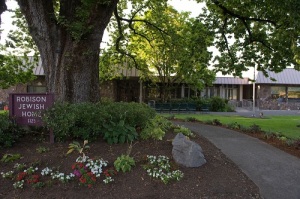Elder’s Family Learning Initiative: Be Aware of Barriers to Exercise for Older Women
December 26, 2011 Leave a comment
By Kimberly Fuson, Chief Program Officer and member of the Elder’s Family Learning Initiative project team
 How might older women’s psychological perceptions and attitudes about exercise decrease their motivation to be active?
How might older women’s psychological perceptions and attitudes about exercise decrease their motivation to be active?
Older women’s psychological perceptions and attitudes regarding exercise are multi-faceted and arise from:
- conflicting and contradictory information throughout the course of their lives based on gender expectations, e.g. “women and girls don’t rock climb”;
- medical research, e.g. “women need to safeguard their reproductive organs”;
- culture; and
- social context.
In late life older women’s motivation to exercise may be decreased by both real and perceived issues, such as:
- fear of injury;
- exacerbation of chronic condition(s);
- inexperience; or
- fear of looking foolish.
The most poignant reason, however, may be the fact that many older women realize they may have not been looking after themselves according to new standards and that they see themselves being scrutinized by a society that has suddenly changed the health rules. For some older women, this may add an additional layer of feeling inadequate that could translate into lack of motivation to be active.
References
Sandra O’Brien Cousins, “‘My Heart Couldn’t Take It’: Older Women’s Beliefs About Exercise Benefits and Risks”, Journal of Gerontology, Vol. 55B, No. 5, 2000, pp. 283–294